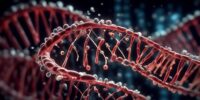What Is Anemia in Women and How to Address It

Ironically, the strength that women possess can often be undermined by a silent adversary known as anemia. This condition, characterized by a deficiency in red blood cells, can leave women feeling fatigued, weak, and unable to fully serve others.
In this article, we will explore the causes and symptoms of anemia in women, as well as effective strategies to address it. By understanding the importance of iron and implementing dietary changes, supplements, medications, and lifestyle modifications, women can regain their vitality and continue to make a positive impact in their communities.
Key Takeaways
- Anemia in women is commonly caused by factors such as iron deficiency, vitamin deficiencies, chronic diseases, and genetic disorders.
- Common symptoms of anemia in women include fatigue, weakness, pale skin, shortness of breath, and irregular heartbeat.
- Treatment options for anemia in women include iron supplements, vitamin supplements, blood transfusions, and lifestyle changes.
- Dietary changes, including consuming iron-rich foods and pairing them with vitamin C-rich foods, are important in managing anemia in women.
Understanding Anemia: Causes and Symptoms in Women
Women who experience chronic fatigue and weakness may be exhibiting symptoms of anemia, a condition characterized by a deficiency in red blood cells. Anemia in women can be caused by various factors, including iron deficiency, vitamin deficiencies, chronic diseases, and genetic disorders. Common symptoms of anemia in women include fatigue, weakness, pale skin, shortness of breath, dizziness, and irregular heartbeat.
It is important for women to seek medical attention if they experience these symptoms, as untreated anemia can lead to serious complications. Fortunately, there are several treatment options available for anemia, depending on the underlying cause. These may include iron supplements, vitamin supplements, blood transfusions, and lifestyle changes such as improving diet and managing chronic conditions.
Understanding the causes and symptoms of anemia is crucial in order to address this condition effectively. In the following section, we will explore the different types of anemia commonly found in women.
Types of Anemia Commonly Found in Women
One common type of anemia found in women is iron-deficiency anemia. It occurs when the body doesn't have enough iron to produce sufficient red blood cells. This condition is prevalent among women due to factors such as menstruation, pregnancy, and inadequate intake of iron-rich foods.
When it comes to addressing anemia, especially in pregnant women, there are various treatment options available. These include iron supplements, which can help replenish the body's iron stores and improve red blood cell production. Additionally, natural remedies such as consuming iron-rich foods like spinach, lentils, and lean meats can also be beneficial.
Other strategies to manage anemia in women include increasing vitamin C intake to enhance iron absorption, avoiding foods that inhibit iron absorption (e.g., tea and coffee), and ensuring a balanced diet. Understanding the role of iron in managing anemia is crucial in developing effective treatment plans.
The Role of Iron in Managing Anemia
Iron plays a crucial role in managing anemia as it is a key component of hemoglobin, the protein responsible for carrying oxygen in the blood.
When the body lacks sufficient iron, it can lead to iron deficiency anemia.
Adequate dietary intake of iron and iron supplementation are effective strategies to combat anemia and improve overall health.
Iron Deficiency Causes Anemia
Understanding the biochemical processes involved in iron absorption is crucial in comprehending how iron deficiency leads to anemia. Iron is an essential mineral that plays a vital role in oxygen transport and energy production. When the body doesn't have enough iron, it cannot produce enough healthy red blood cells, leading to anemia.
To address iron deficiency and prevent anemia, the following strategies can be implemented:
- Iron supplementation: Taking iron supplements can help replenish iron levels in the body and prevent anemia.
- Dietary changes: Consuming iron-rich foods such as lean meats, dark leafy greens, and legumes can help increase iron intake.
- Vitamin C consumption: Pairing iron-rich foods with foods high in vitamin C can enhance iron absorption.
- Avoidance of iron inhibitors: Certain substances, such as tea, coffee, and calcium-rich foods, can inhibit iron absorption and should be avoided.
- Regular blood tests: Routine blood tests can help identify iron deficiency and anemia early on, allowing for prompt treatment.
Importance of Dietary Iron
The significance of dietary iron in managing anemia can be observed through its role in supporting oxygen transport and energy production. Iron is an essential mineral that plays a vital role in the production of hemoglobin, a protein responsible for carrying oxygen in the blood. Without sufficient iron, the body cannot produce enough healthy red blood cells, leading to anemia.
To emphasize the importance of iron-rich foods, we can look at the table below, which highlights some excellent sources of dietary iron:
| Food | Iron Content (mg) | Serving Size |
|---|---|---|
| Spinach | 2.7 | 1 cup |
| Lean Beef | 2.6 | 3 ounces |
| Lentils | 3.3 | 1 cup |
| Chickpeas | 4.7 | 1 cup |
| Oysters | 8.0 | 3 ounces |
In addition to consuming iron-rich foods, it is essential to consider factors that affect iron absorption. Vitamin C, for example, enhances iron absorption, while certain substances like phytates and tannins can inhibit it. Therefore, pairing iron-rich foods with vitamin C-rich foods, such as citrus fruits, can optimize iron absorption.
Iron Supplementation Benefits
A comprehensive review of recent studies reveals that daily iron supplementation has been found to increase hemoglobin levels by an average of 1.2 grams per deciliter in individuals with iron deficiency anemia. This finding highlights the potential benefits of iron supplementation in addressing anemia, a condition characterized by low hemoglobin levels and reduced red blood cell production.
In addition to iron supplementation, there are alternative treatments for anemia that can be considered. Here are five potential options:
- Dietary changes: Consuming iron-rich foods such as lean meats, dark leafy greens, and legumes can help increase iron levels naturally.
- Vitamin C supplementation: Pairing iron-rich foods or supplements with vitamin C can enhance iron absorption.
- Blood transfusions: In severe cases of anemia, blood transfusions may be necessary to rapidly increase hemoglobin levels.
- Bone marrow stimulation: Medications can be used to stimulate the production of red blood cells in the bone marrow.
- Treatment of underlying causes: Identifying and addressing the underlying cause of anemia, such as nutritional deficiencies or chronic diseases, is crucial for effective management.
While iron supplementation guidelines should be followed, exploring alternative treatments for anemia can provide additional options for individuals seeking to improve their hemoglobin levels and overall well-being.
Effective Dietary Changes to Combat Anemia
Implementing specific dietary modifications, such as increasing the consumption of iron-rich foods, can significantly alleviate anemia symptoms in affected individuals. Anemia, a condition characterized by a decrease in red blood cells or hemoglobin levels, can lead to fatigue, weakness, and shortness of breath. While iron supplementation is a common treatment for anemia, incorporating healthy recipes and natural remedies into one's diet can also be effective in addressing this condition.
Including iron-rich foods such as spinach, lentils, and lean meats can help boost iron levels in the body. Additionally, consuming foods rich in vitamin C, such as citrus fruits and berries, can enhance iron absorption. It is also important to avoid foods that can inhibit iron absorption, such as tea, coffee, and high-fiber foods, during meals.
Incorporating healthy and balanced meals into one's diet can not only alleviate anemia symptoms but also contribute to overall well-being. By focusing on nutrient-dense foods and making mindful choices, individuals can take an active role in their health and support their body's natural healing processes.
Supplements and Medications for Anemia Treatment
When considering anemia treatment, it is essential to discuss with a healthcare provider the appropriate supplements and medications available to address this condition effectively. There are several supplement alternatives and medications that can help in the management of anemia. These include:
- Iron supplements: Iron is crucial for the production of healthy red blood cells. Iron supplements can help replenish iron stores in the body.
- Vitamin B12 supplements: Vitamin B12 deficiency can lead to anemia. Taking B12 supplements can help restore B12 levels and improve anemia symptoms.
- Folic acid supplements: Folic acid deficiency is another common cause of anemia. Supplementing with folic acid can help address this deficiency and improve anemia.
- Erythropoietin-stimulating agents: These medications stimulate the production of red blood cells in the body, especially in individuals with chronic kidney disease.
- Blood transfusions: In severe cases of anemia, blood transfusions may be necessary to quickly restore red blood cell levels.
Lifestyle Modifications to Support Anemia Recovery
To achieve optimal anemia recovery, individuals should focus on incorporating dietary changes and physical activity into their daily routines in addition to using supplements and medications.
Lifestyle modifications play a crucial role in supporting anemia recovery by providing the necessary nutrients and promoting overall well-being. A diet rich in iron, vitamin B12, and folate is essential for replenishing the body's iron stores and stimulating red blood cell production. Including foods such as lean meats, leafy greens, fortified cereals, and citrus fruits can help meet these nutritional needs.
Regular physical activity, such as brisk walking or cycling, can also improve blood circulation and boost the production of red blood cells.
Additionally, individuals should avoid smoking and limit alcohol consumption, as these habits can hinder the body's ability to absorb nutrients and worsen anemia.
Frequently Asked Questions
Can Anemia Be Passed Down From Mother to Daughter?
Anemia can be passed down from mother to daughter through genetic inheritance. This is known as maternal transmission. Understanding the role of genetics in anemia can help in addressing and managing the condition effectively.
Can Hormonal Changes During Pregnancy Contribute to Anemia in Women?
Hormonal changes during pregnancy can contribute to anemia in women. Understanding the connection between these changes and the development of anemia is crucial for managing symptoms and providing effective care for expectant mothers.
What Are Some Non-Dietary Ways to Increase Iron Absorption in the Body?
Non dietary iron supplements, such as iron pills or liquid iron, can help increase iron absorption in the body. Another option is iron infusion therapy, where iron is directly injected into the bloodstream for faster absorption.
Is Anemia More Common in Women of Certain Age Groups?
Anemia is more common in women of certain age groups due to factors such as menstrual blood loss and pregnancy. Understanding the common causes, symptoms, and treatment options can help in prevention strategies for addressing anemia in women.
Can Anemia Be Caused by Factors Other Than Iron Deficiency?
Other causes of anemia in women include vitamin deficiencies, chronic diseases, and genetic disorders. Understanding the symptoms of anemia in women is important for early detection and appropriate treatment.









